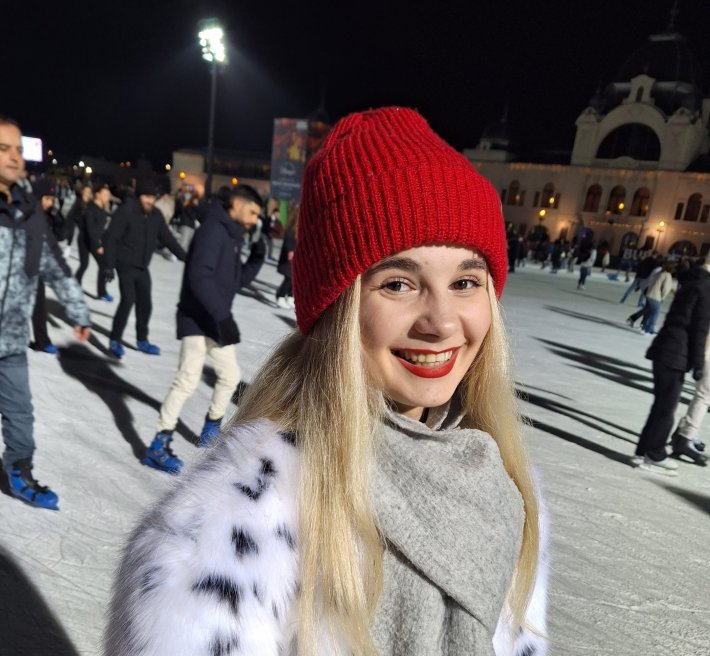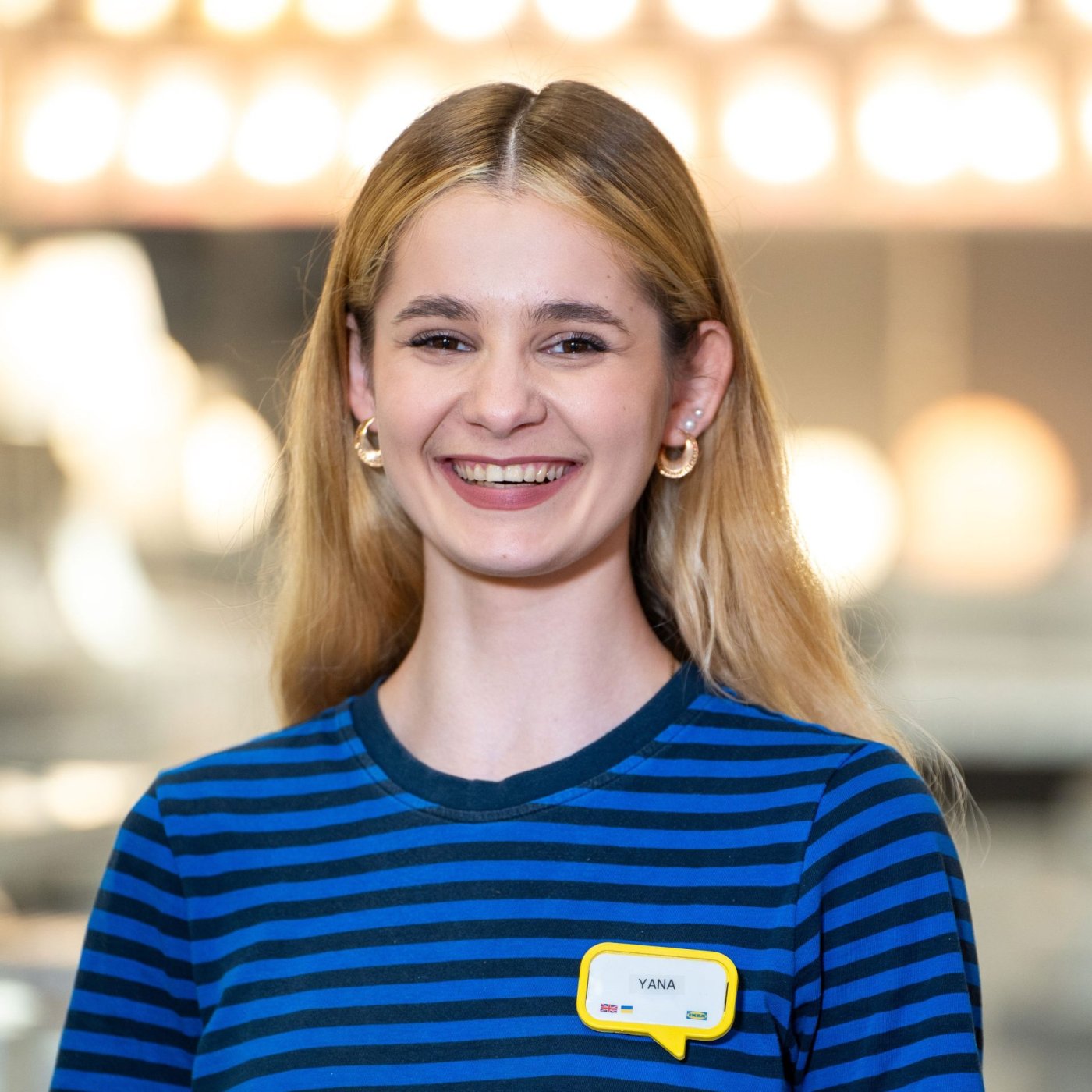Skills for Employment
Shadia’s story
Read the story of Shadia who despite everything continues to stand for justice and inclusion.

Forced to flee Ukraine, Yana Stepaniuk arrived in Hungary with nothing but hope.
As a child in Zaporizhzhia, my life revolved around melody: piano lessons, competitions, concerts and, most importantly, the bandura. The national instrument of Ukraine became my passion, my voice, my way of expressing all the emotions words could not contain. I performed, travelled and dreamed of a future filled with music. But war silenced everything.
The day it started, I was with a friend. My mother called. “The war has begun.” I couldn’t believe what I was hearing. At first, all was quiet. Then came the sirens and, after that, the rockets. The building shook around me. Fear took hold of my body, but my mind was filled with only one thought—my family. My mother. What would happen to them? What would happen to me? I had to leave. There was no other choice.
I packed what little I could carry and set out alone. On the 8th of March, 2022, my journey began. From Ukraine, I crossed into Poland, stepping over the border into an uncertain future. A man noticed I was alone. His wife and child were also fleeing and he offered for me to travel with them. In that moment of fear, a stranger’s kindness became my first glimmer of hope. Together, we made our way to Krakow.
The refugee office provided shelter for the night, but when I woke, I faced a new challenge: there was no transport to Budapest. Fear, exhaustion and an overwhelming sense of being lost took over. I called my mother in tears. “I can’t do this,” I told her. She reassured me and somehow I found the strength. I checked the train schedules—there was one leaving for Budapest in 20 minutes. I bought a ticket, boarded the train and held my breath until we arrived. I was 18, alone in a new country, with few possessions and no understanding of the language. A friend let me stay with them for three days and with the help of volunteers, I found a place to live.
A Hungarian woman opened her home to me and for one and a half years, I lived with her, learning a new way of life—one that required Google Translate just to have a conversation. A friend of my host knew someone at IKEA. They were looking for employees. I got an interview and days later, a contract. For the first time since leaving home, I had stability. Work meant income and independence. It meant I could send money to my family, who needed it more than I did.
Since I was 15, I understood the value of work. My family was not rich. I wanted to earn my own money, not rely on my parents. Now, in Budapest, my job gave me purpose. It allowed me to build a life on my terms. The language was my next challenge. In Zaporizhzhia, I had started learning English. But here, where few people spoke Ukrainian, I struggled. At home, my host and I relied on Google Translate daily.
At work, my colleagues helped me navigate the barriers. Slowly, day by day, I improved. One day, I realised I could understand people without asking them to repeat themselves. It felt like a small miracle. And with language came connection. I made friends: Ukrainian friends, Hungarian friends, people from all over. We walked in the parks, visited museums, played board games and for the first time in a long time, I felt less alone. Yet my heart was still with my family.
If I see news of Zaporizhzhia, I panic. I call immediately. I need to know she is safe. Once, an explosion near our home shattered windows and my grandmother was hit by a falling frame. She survived, but now, their windows are sealed with wood and plastic. They cannot see the sky. I beg them to move west, closer to the Hungarian border. My brother is in the army, my stepfather cannot leave, or he will be conscripted, and my grandmother refuses to abandon her home. When I was 17, I lost my father. It was so difficult for me to move on after that. Now I cannot bear to lose anyone else.

I dream that one day, I will open a small music school, a place where children can discover the joy of melody. Just as I once did. I want to share something of myself and leave something behind that matters. Maybe I will become a singer or an actress. I do not know exactly what the future holds, but I know that work saved me. It gave me purpose, independence and the ability to help my family.
For refugees like me, work is more than a job. It is the first step toward rebuilding a life. It is the bridge between survival and belonging. And it proves, more than anything, that we are better together.